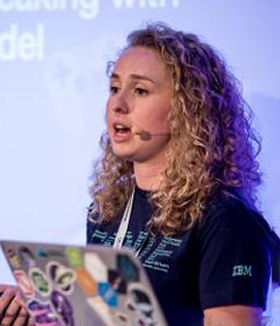For Java developers, the Just-In-Time (JIT) compiler is key to improved performance. However, in a container world, the performance gains are often negated due to CPU and memory consumption constraints. To help solve this issue, the Eclipse OpenJ9 JVM provides JITServer technology, which separates the JIT compiler from the application. JITServer allows the user to employ much smaller containers enabling a higher density of applications, resulting in cost savings for end-users and/or cloud providers. Because the CPU and memory surges due to JIT compilation are eliminated, the user has a much easier task of provisioning resources for his/her application. Additional advantages include: faster ramp-up time, better control over resources devoted to compilation, increased reliability (JIT compiler bugs no longer crash the application) and amortization of compilation costs across many application instances. We will dig into JITServer technology, showing the challenges of implementation, detailing its strengths and weaknesses and illustrating its performance characteristics. For the cloud audience we will show how it can be deployed in containers, demonstrate its advantages compared to a traditional JIT compilation technique and offer practical recommendations about when to use this technology.
Talk Level:
BEGINNER
Bio:
Grace is a Developer Advocate at IBM, working with Open Liberty, MicroProfile and Cloud Technologies. She has been with IBM since graduating from Exeter University with a Degree in Biology. Grace enjoys bringing a varied perspective to her projects and using her knowledge of biological systems to simplify complex software patterns and architectures. As a developer advocate, Grace builds POC’s, demos and sample applications, and writes guides and tutorials. She is a regular presenter at international technology conferences and has authored a book on reactive systems. Grace also has a keen passion for encouraging more women into STEM and especially Technology careers.
